Building Hollywood’s Village: HPA President Kari Grubin on Community, Innovation, and Change
Since 2002, the Hollywood Professional Association (HPA) has been committed to supporting and advancing the media and entertainment industry. Renowned for events like the HPA Tech Retreat, where professionals discuss the intersection of creativity and cutting-edge workflows, and the HPA Awards, which celebrate groundbreaking artistry and innovation across the entertainment industry, the association plays a vital role in facilitating knowledge and fostering collaborative environments to move the industry forward.
It’s through these engaging events that have sparked other HPA initiatives, including the Young Entertainment Professional (YEP) and Women In Post (WIP), both of which bring forward thoughtful insights and conversations, allowing working professionals to stay informed, build connections, and gain new skills that will shape the future of the industry. In January of this year, Kari Grubin stepped into the role of acting HPA President, with a goal to keep the organization at the industry’s forefront, stating: “HPA will continue to be a conduit for our community to grow, reach out for new opportunities and adapt.”
We connected with Grubin, a long-standing board member, who in her time launched the WIP program in 2011 and co-created the YEP, which, according to the HPA has mentored 200 up-and-coming industry professionals, to ask how the HPA is adapting to industry trends, how their programs are evolving, and the impact of California’s new film tax incentive.
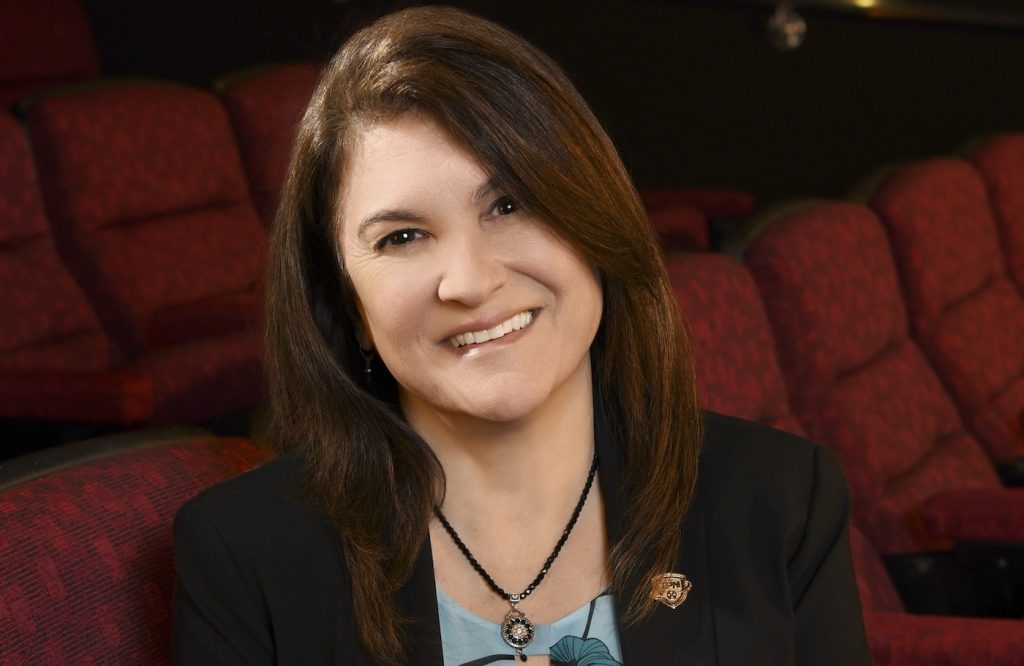
How would you describe the HPA to anyone not familiar with the organization?
We are representatives of the media supply chain: the strategists, creatives, executives, and business owners who help content creators tell their stories. That can mean many things, including implementing the best process or workflow, identifying the right tools and people to execute it, or developing the necessary technologies. HPA is all about building community and connection through the events we produce. The HPA community is critical to the entire lifeline of making content, and it takes a village. Building that community and shining a light upon it, with a focus on knowledge exchange and recognition, has been our mission for the last 25 years.
As HPA president, have you set any goals to expand the organization that you felt were missing?
When the opportunity arose to become president, I thought about how I could continue that legacy of making the HPA accessible to more people, where they could have a space and a community to learn, grow, solve problems, and collaborate. It’s important to me that HPA supports an industry that’s experiencing a colossal transition. I want to continue helping our community and focus on our members in a way that creates a safe space for conversations to expand and grow.
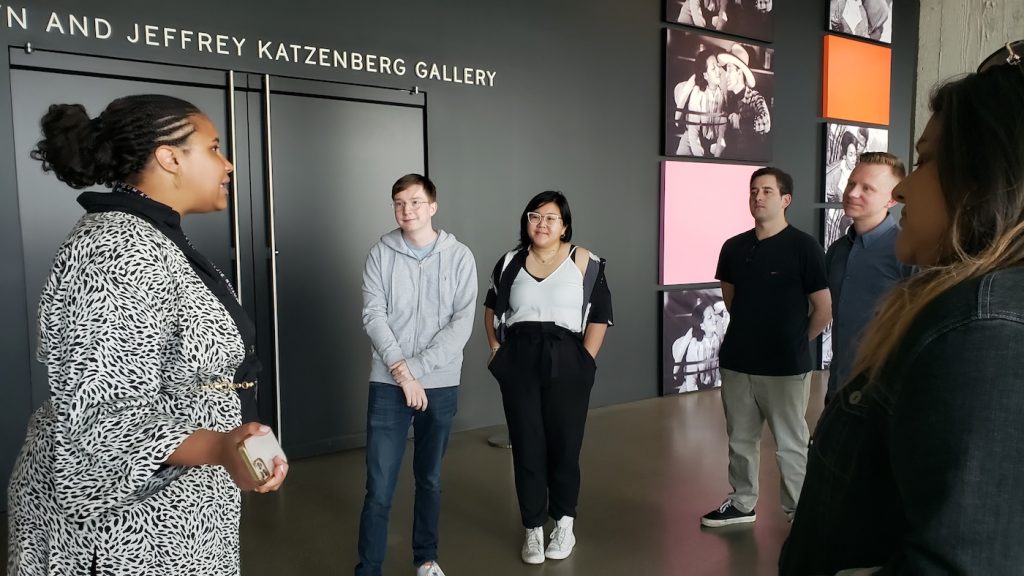
The HPA offers several roundtable discussions and industry expert panels that anyone in the industry can attend. Can you talk about some of those initiatives?
HPA’s NET (Networking Education Technology) roundtable events are extremely popular. They put subject matter experts, many of whom are directly involved in pressing industry issues, in conversation with attendees. Inquiry, information, and ideas flourish at NET events, all while people are connecting. The NET roundtable events are designed so that attendees move three times to different tables and talk with subject matter experts who are leading the tables on different topics. It’s a really diverse and highly engaged set of conversations.
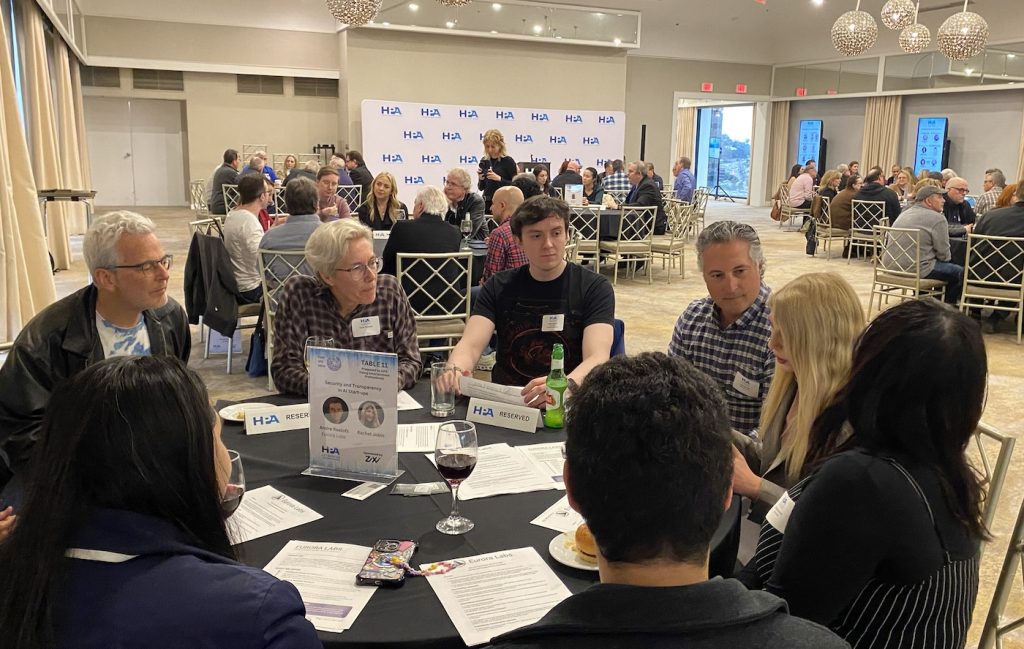
Women In Post (WIP) is a great initiative. How has the program evolved, and what can future attendees expect?
Women In Post has evolved, and HPA has nurtured it to become a profoundly vibrant part of the organization. I would say that at any WIP event, you can expect to hear from and meet women who are defining (or redefining) their organizations or companies. WIP events, such as lunches during the year, the HPA Tech Retreat Women In Post lunch, and other mixers, put interesting and accomplished women in the spotlight and are phenomenal networking events.
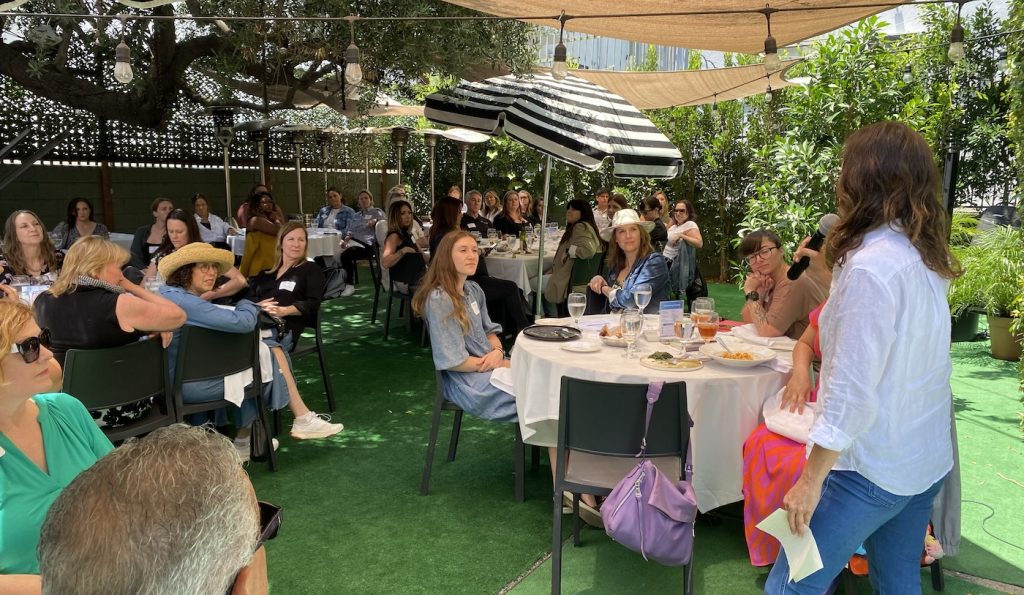
For those first stepping into the industry, the HPA created Young Entertainment Professionals (YEP). How has the program evolved?
Young Entertainment Professionals provides a place for people who are in the first 10 years of their career to participate in the organization, see its value, and build their own networks amongst each other. They are the future of the HPA, and over the last couple of years, it’s grown. Since its launch, over 200 YEPS have gone through the program. Each year’s class is about 35 YEPs matched with industry mentors. Initially, Young Entertainment Professionals was about people in a specific age range, but we updated the requirements to be about the first 10 years of their media supply chain career, opening a space for more people to participate.
The HPA Tech Retreat is one of the organization’s headliner events – the most recent taking place in February 2025. What trends came out of the discussions?
AI remained a big topic at this year’s Tech Retreat, and it will continue to be as it is leveraged and normalized throughout our pipelines. Progress happens regardless of whether we are in favor of something in particular or not. Our community is starting to embrace, learn, and understand the benefits and dangers. There are numerous questions on the legal front regarding provenance and other methods to protect intellectual properties.
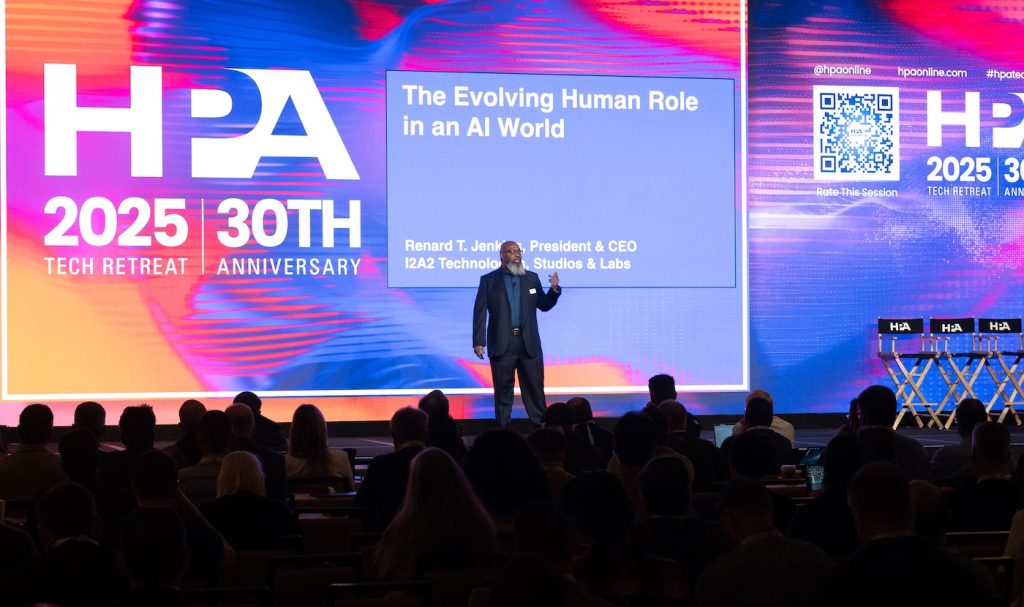
Anything else?
Another big conversation at the Tech Retreat was focused on the new definition of media creation. What does it look like from what was formerly the traditional broadcast side, and leveraging through multiple distribution networks? And what are the tool sets around the content creators? There’s a bit of a misnomer around non-traditional productions. Production encompasses all types of content creation, whether it’s a YouTube influencer or the more traditional episodic and feature content. It all takes planning and execution. When the team from MrBeast discussed The Beast Games pipeline at this year’s Tech Retreat, they explained the immense size of the production, including the amount of local storage needed, which was massive, truly insane. And so, while there are different ways of telling stories, you still need to set up a process to tell those stories by having the right tools in place, but in a slightly different way.
Since you mentioned AI, does the HPA have a viewpoint on the topic?
It’s important to distinguish generative AI from process-improvement AI and tools that enable entirely new possibilities. We’ve been using AI tools for a long time. And the one thing that’s really challenging in the conversation is that everybody, in some form or another, is interacting with AI tools online, whether it’s shopping or social media. I think we’ll start to see what AI tools are being used to tell stories and how people are leveraging them to do things that they can’t accomplish with other tools, rather than just focusing on tools based on generative AI functions.
That makes sense.
HPA is always going to look at tools and technologies and evaluate those tools based on the actual function, how to leverage the tool, and bring that visibility to our community. HPA is here to recognize innovation, but we are also about protecting people who create and own content. How can we make it transparent and visible to our members, so they understand what they are getting when using an AI-based tool? What does that mean?
When people think of AI right now, they’re usually thinking of Large Language Models like ChatGPT.
If you’re going to query an AI tool like a public-facing LLM, you’re taking a big chance. Intellectual property could potentially be used as a source for other purposes or even stolen. But if you’re building or using a private AI tool that only queries within your private network, then that’s different. It is up to each individual to decide what is the best decision for their particular needs. We do not judge anyone for the decisions they make, but we help them protect themselves. HPA is 100% supportive of intellectual property rights throughout the process.
You’re also part of the Trusted Partner Network (TPN) team. Can you share more details about TPN’s mission?
Trusted Partner Network (TPN) is a global, industry-wide content security initiative that the Motion Picture Association wholly owns. TPN provides programming intended to address security in various contexts and at different points in the content pipeline. These include: the MPA Content Security Best Practices, which are maintained by TPN and establish a single benchmark of minimum security preparedness for content industries; TPN security assessments, which measure a Service Provider’s current security status against the MPA Best Practices; and TPN+, a proprietary software application and global registry of industry Service Providers, which enables them to securely and seamlessly share their security information with Content Owners.
The California government passed its latest California Film Tax Incentive Program, which increased the cap to $750 million. What are your takeaways from what passed, and what are you hoping for future incentives?
This new funding is a critical lifeline for not just the media industry, but all the ancillary businesses in California, which are intrinsically tied to the health of our business. I was proud to join so many other participants in California’s media creation supply chain to lobby for more financial support for our entire industry. Under the leadership of the MPA and California Production Coalition, I hope to see more direct support for postproduction, visual effects, and the other professional services that take place later in the production process. I would like to see how we can work together to create more incentives on a national level.
Before we let you go, how can someone join or get involved with the HPA?
Over the last few years, we have expanded what HPA membership looks like. Obviously, there’s always individual membership, and it’s easy to go to the website and join. But we also needed to provide additional support for companies to have a way to be involved. No matter what size or at what level a company joins, its employees get an inherent membership.
This article is part of an ongoing series that raises awareness about the businesses and individuals in the film and television community. HPA is a member of the California Production Collation. You can find more about the organization here.
Featured image: HPA’s 2025 Tech Treat.



